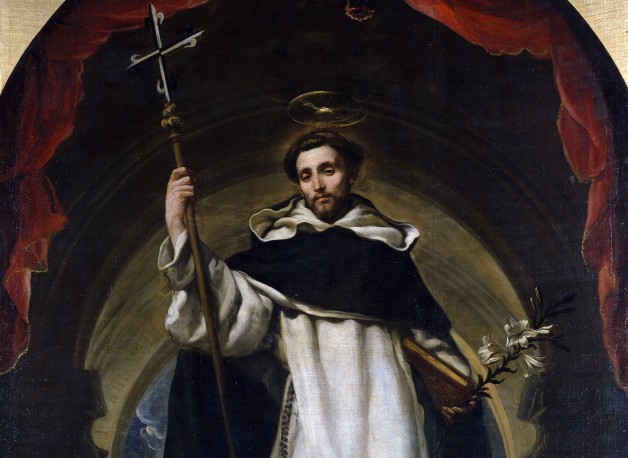Critics were almost entirely complimentary to what they were pleased to call my brilliant paradoxes; until they discovered that I really meant what I said.
Thus writes G.K. Chesterton, whose pen brought popular apologetics to perfection in paradox.
Now paradox is more than mere witticism, and Chesterton’s exemplary specimens soar far higher than the lowly heights of rhetorical climax. But why was it Chesterton, the porcine apologist, and not, say, Bernard Shaw, the satirical socialist, who was crowned the “prince of paradox”? Historical accident is not the answer. Christian doctrine is the apotheosis of paradox, and the perfection of the latter must be the preaching of the former.
There are no paradoxes more profound—or more true—than the deepest mysteries of our faith: God is one and three, Jesus Christ is fully God and fully man, and, as we sing in the Victimae, “the Prince of life, who died, reigns immortal.” Like all paradoxes, these apparent contradictions need not be false. But unlike any other paradoxes, the doctrines of the Trinity, the Incarnation, and the Resurrection are saving truths.
Today, as the Church celebrates Saint Dominic, the father of the friars preachers, it is fitting to reflect upon paradox and its relationship to Christianity, for Dominic himself, like the Christian doctrine he preached, was a paradox.
Compared to many other saints (indeed, compared to many other founders of religious orders), we know relatively little about the person, and personality, of Dominic de Guzman. This only serves to accentuate the apparent contradictions latent in what we do know: though the patriarch of preachers, he was rigorous in silence; a man of austerity, he was renown for his warmth; devoted to study, he sold his books; ever firm in his purpose, he let himself be overruled.
For the sons and daughters of Saint Dominic, far from rendering him incomprehensible and inaccessible, these paradoxes provide a point of entry into his person, for they reveal the true nature of the Order he founded, and “the tree shall be known by its fruits.” If we find in him both contemplative canon and itinerant preacher, this is because his Order must also balance the tensions of the contemplative and active lives. If we find in him lowly poverty and high liturgy, this is because his Order must be energized by both ecclesial prayer and personal sanctity. If we find in him uncompromising austerity and generous dispensation, this is because he desired the members of his Order to be motivated by charity and virtue, not legalism or moralism.
Saint Dominic was undeniably a man of great charisma. But he subordinated that charisma to the charism of the Order he founded. Though great in sanctity, he did not focus the attention of others on the example of his holiness, but on the work of the Holy Preaching. And yet in so doing, he has become an example to all his sons and daughters. This is truly a paradox, and this is the man we celebrate today.
Let me end as we began, with Chesterton:
There are two kinds of paradoxes. They are not so much the good and the bad, nor even the true and the false. Rather they are the fruitful and the barren; the paradoxes which produce life and the paradoxes that merely announce death.
Perhaps the prince of paradox was not thinking of the patriarch of preachers when he penned these words, but there is no question of their applicability. St. Dominic was a fruitful paradox, and his fruit is Dominican life. In this, he points us toward that far deeper paradox, the truth to whom he was consecrated, whose fruit is eternal life.
✠
Image: Claudio Coello, Saint Dominic







